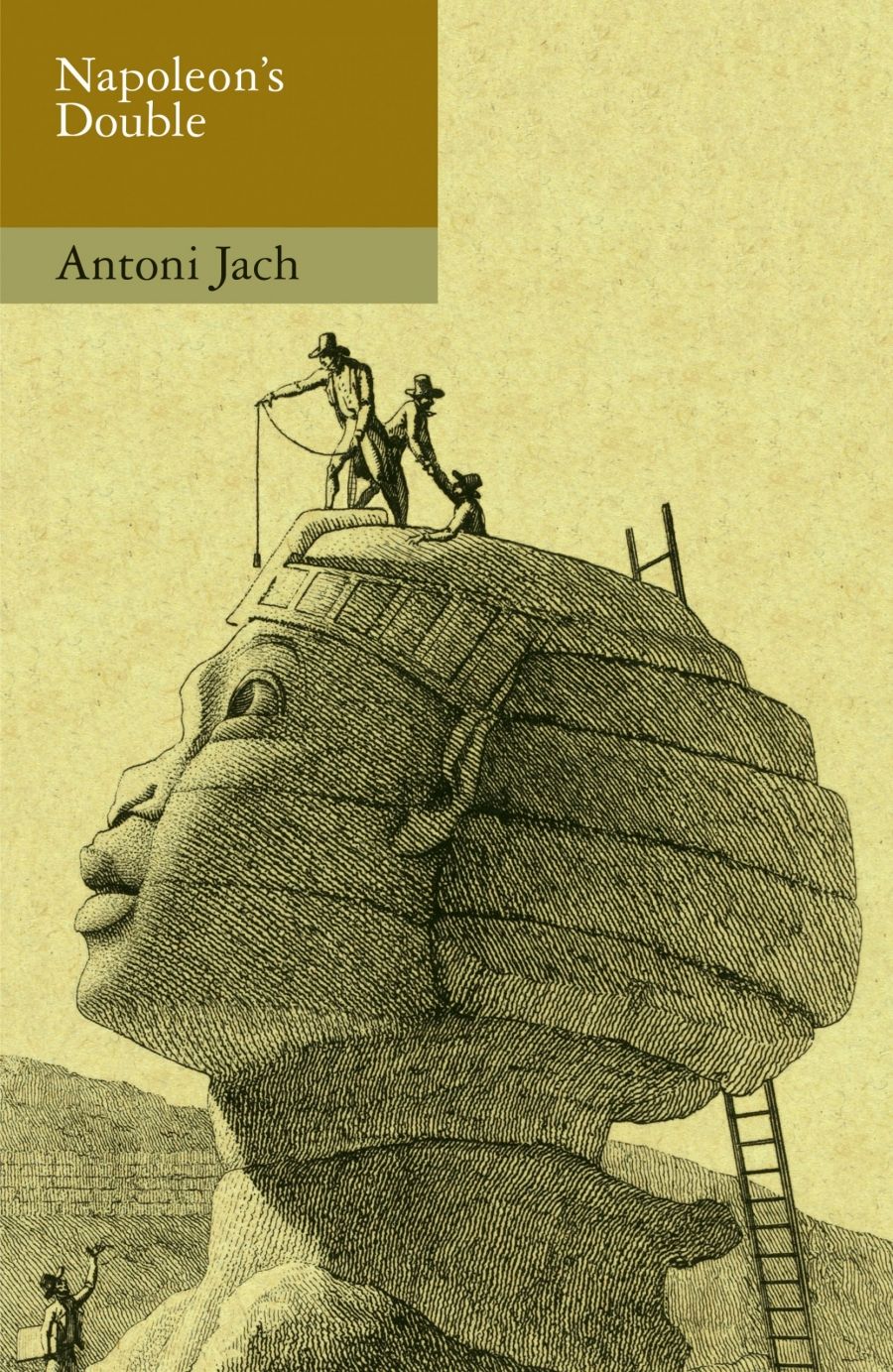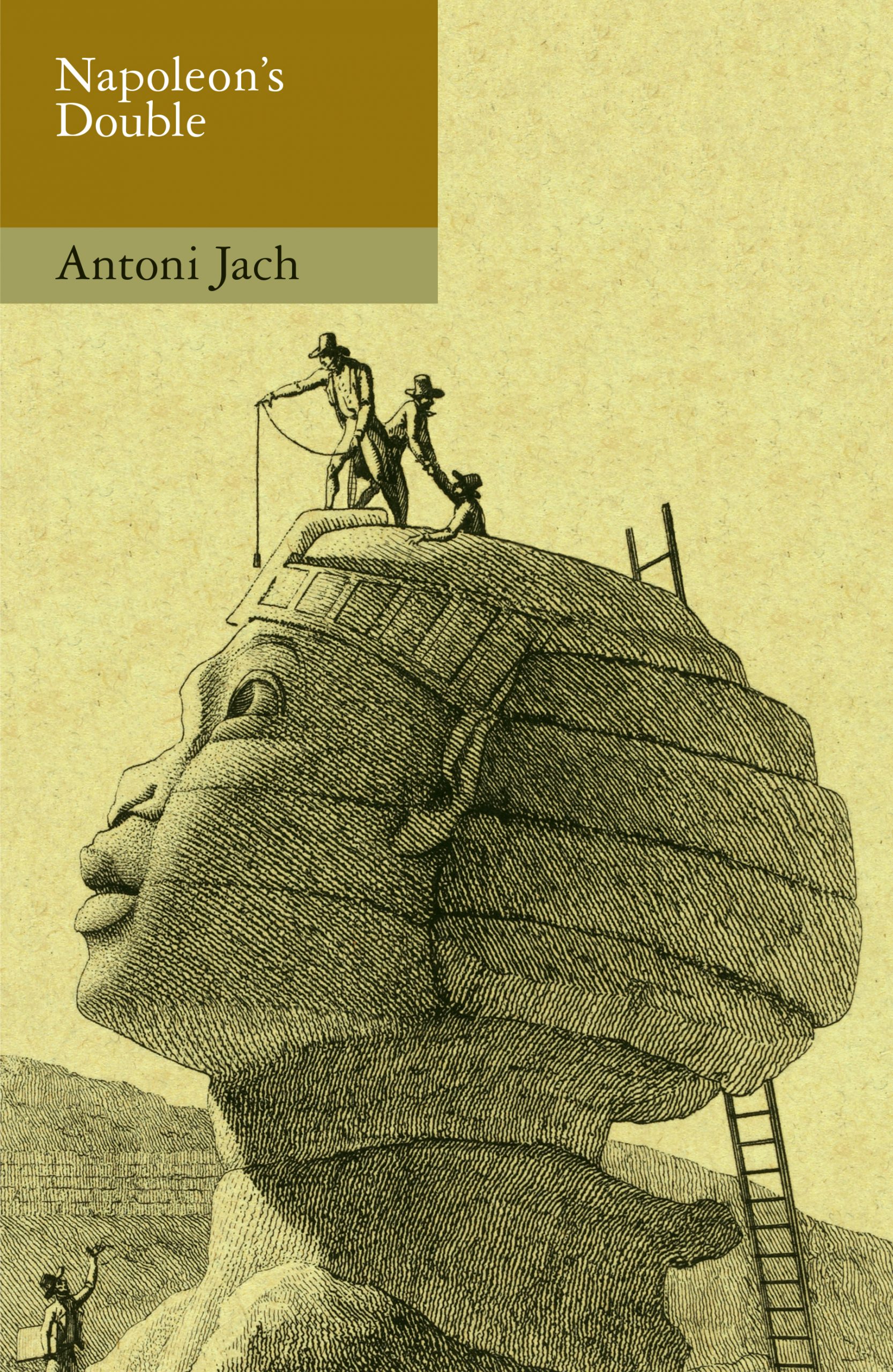
- Free Article: No
- Contents Category: Fiction
- Review Article: Yes
- Article Title: The fighting Jeans
- Online Only: No
- Custom Highlight Text:
Napoleon’s Double, by Antoni Jach, is another in the series of fictions inspired by the larger-than-life figure of Napoleon Bonaparte. It would be wrong, however, to think that this is an historical novel about Napoleon the man. The operative word in the title is the word ‘double’, and the imaginative writing in the novel ‘doubles’ history, illuminating it. Doubles abound in the work: of the characters, but also of central themes and meanings.
- Book 1 Title: Napoleon's Double
- Book 1 Biblio: Giramondo, $29.95 pb, 314 pp
- Book 1 Cover Small (400 x 600):

- Book 1 Cover (800 x 1200):

The main protagonists are seven boys whose first name is Jean: conscripts in Napoleon’s Egyptian campaign, all imbued with the ideals of the Enlightenment, which they see exemplified in their hero. From humble backgrounds, they leave their tiny village near Dijon ‘to see the Pyramids, meet [their] Hero and find out everything there is to know’. The young men, inspired by the writings of French philosophers of the Enlightenment and thinkers such as La Rochefoucauld, Pascal and Spinoza, set forth in quest of knowledge and glory, convinced that Napoleon will lead them towards these goals. Each of the seven Jeans incarnates different aspects of intellectual, moral and religious life: Jean-Yves, the natural leader of the group, is described as the philosopher by Jean-Antoine, the scribbler. Then there are the fighting twins, Jean-Juste and Jean-Noël, Jean-Claude the artist, Jean-Baptiste the theist and Jean-Marie the lover.
Their journey takes them first to Egypt, where they live through various colourful adventures: nights spent in the harem and the healing of a depressed oriental prince. Jean-Yves, distinguished as the heroic conqueror in the skirmish at Shubra Khit, is singled out by Napoleon’s mentor, the scholar and mathematician Monge, to be trained as one of the conqueror’s doubles to replace him in moments of danger, or when Napoleon wishes to appear ubiquitous. Jean-Baptiste, a constant reader of Pascal, the pessimistic seventeenth-century Jansenist author of aphorisms concerning man’s state, is a doctor in training; Jean-Claude depicts Egypt but is never satisfied with his sketches and nightly destroys what he has created during the day. The fighting Jeans are lost in the desert and Jean-Marie, inconsolable in his unrequited love for Napoleon’s Egyptian mistress, disappears into the sands of the desert.
Monge, embarrassed by Jean-Yves’s obsession with doubling Napoleon, decides to get rid of him and arranges for the remaining Jeans to be attached to Captain Nicolas Baudin’s scientific expedition, commissioned by Napoleon, to the Southern Hemisphere. Removed they are from Napoleon’s proximity but not from his influence, and the quest for new knowledge is firmly on the agenda. Here it is the turn of Jean-Antoine to become the double of one of the young scientists, Péron, in his fervent and indefatigable pursuit of knowledge. Jean-Yves has lost none of his overweening self-importance, and proclaims his special relationship with Napoleon to all and sundry; Jean-Claude, doubling the artists Lesueur and Petit, sketches away busily; Jean-Baptiste assumes a medical role; and all except Jean-Antoine pursue their self-destructive destinies.
The most spectacular of these fates involves Jean-Yves’s decision to quit the expedition in order to become the self-proclaimed parody double of Napoleon, quixotically proclaiming himself to be King of Napoleonville. Jean-Antoine persists, but ultimately abandons his plans to return to Napoleonic France at Mauritius and goes back to Sydney Town to be united with his Irish love. Several years later, from a slab-hut in Rose-Hill, New South Wales, Jean-Antoine, the narrator-hero, chronicles the adventures of the seven.
Napoleon’s legendary status is one of the questions explored in the novel. The historical character – the luminous but absent centre of the tale – provides the focus that brings together the two historical moments. Napoleon, who never appears, functions as a mythical, godlike, inscrutable figure. This shadowy figure obsesses the seven Jeans: what does he look like? what sort of person is he? is he the Enlightenment man, an inspired leader or a megalomaniac?
So what is the ultimate message of the novel? Jean-Antoine’s other double is Candide, the model of the young innocent abroad, who tried to reconcile all he saw with Leibniz’s dictum that ‘All is for the best in the best of possible worlds’ and finally retired to cultivate his garden. The ambiguities of Voltaire’s ending are mirrored in Jach’s novel. Is Jean-Antoine’s decision to settle in New South Wales an opting out, or is it a critique of Enlightenment principles and a statement that productive physical work is more rewarding than philosophising?
Jean-Antoine is a more complex figure than Candide. While the other Jeans in the novel see the world through the prism of their favourite writers, Jean-Antoine matures as the novel progresses and as his belief in Napoleon’s heroic status wanes. Reason takes over from imagination. Jean-Antoine regards Sydney Town as a garden of Eden, an escape from war-torn Europe, but also as a place without a past, the negation of history and a materialistic society in which philosophical ideas have no currency. The narrative device of the first-person narrator hero allows Jach to convey the shifts in his hero’s consciousness and to embroider on the ironies of history, presenting them in such a way that they resonate with contemporary events and preoccupations.
Jach’s novel, illustrated with the evocative line drawings of Vivant Denon and Lesueur, is a rich and intriguing adventure novel, a kind of Bildungsroman, but also a perceptive interrogation of various strands of post-Enlightenment thought. Napoleon’s Double is both a ‘work of ideas’ and an historical novel, seamlessly interweaving history and fiction in a way that brings both alive.


Comments powered by CComment